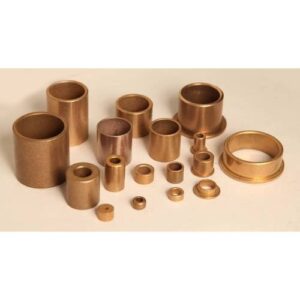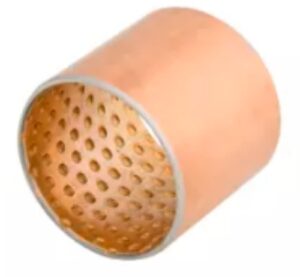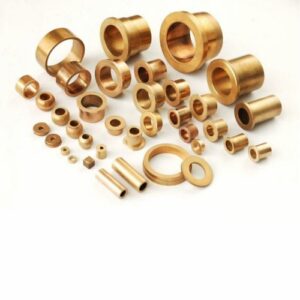Douille pilote
- Clutch pilot bearings sleeve bushing ISO 9001: 2015 Agréé
- Automobile Pilot Bushing
- Bronze, POM Materials
- Customizable and free design
You can asking our experience engine for how to install or Remove a Pilot Bushing, for some more information about pilot bearing you can take a look below.
Contact our sales assistant for the pilot bushing catalogue.
Request a Quotation for Your Pilot Bushing
Bushing MFG accepts orders for any type of pilot bushing made from special materials or custom bushing with a minimum quantity required.
Produits connexes
Clutch pilot bearings – Things to Know
What is a pilot bushing?
A pilot bushing also referred to as a transmission pilot bushing, is one of the most important parts of an automobile clutch. Pilot bushings are the component of a transmission system that allows for the engine’s crankshaft and the transmission’s input shaft to rotate at different speeds. The clutch pedal is the mechanism that a driver uses to disengage and reengage these two transmission components, and the pilot bushing is the part that makes sure that the reengaging is possible and safe. Pilot bushings can come in many different styles and can be either bushings or bearings.
What is the purpose of a pilot bearing or bushing?
Pilot bushings or transmission pilot bushings exist to make manual transmissions work without much stress on the transmission. A transmission can’t really work without a pilot bushing, but if it could it would be taking a lot of stress and damage each time that the transmission’s input and the engine’s crankshaft engage. This is because the gears are rotating in different directions at different speeds, and without the pilot busing, they would be left to violently crash against each other until finally synchronizing.
How do I know if my pilot bushings are bad?
Bad pilot bushings are loud, and they tend to make painful grinding noises. If the pilot bushing is broken beyond repair, the noise will be very audible. This is because, as described above, the pilot bushing works to smooth the reengaging of the transmission’s input and the engine’s crankshaft. When the pilot bushing is broken, these two rapidly spinning gears crash into each other and make very loud noises. Most manual transmission vehicles use pilot bushings or pilot bearings, and after significant wear, it is natural for pilot bushings and pilot bearings to wear out and need to be replaced.
If the transmission is making sounds when the clutch is disengaged, there may be an issue with the pilot bearing or pilot bushing. Other symptoms other than noise may be difficulty switching between gears, into first gear from neutral, and into reverse from neutral.
Where does the pilot bushing go?
The pilot bushing goes inside the transmission system. The pilot bushing or bearing is the main joint used to connect the transmission’s input and the engine’s crankshaft, so naturally it goes right between these parts. This is all very intimately related to the movement of the clutch, too, as they all form one codependent system.
Pilot bushing vs pilot bearing
Pilot bushings and pilot bearings serve the same purpose, and a vehicle only needs one of the two. The only difference is what they look like and how they work, while their actual function is exactly the same. Pilot bearings can be ball bearings, roller bearings, ou paliers lisses. These usually must be manually lubricated upon installation. Pilot bushings are usually made of self-lubricating brass, that is brass which has been impregnated with oil.
Pilot bushing removal
When pilot bushings and pilot bearings go bad, they need to be removed. Typically, this will be done by a mechanic, because the broken bushing will also need to be replaced with a new one. There are two main ways to remove a pilot bushing or pilot bearing that is lodged into place. The first way is by using a pilot bushing removal tool, which is a special press that is designed explicitly for the removal of pilot bushings. This tool slides inside of the bearing and expands to get a firm grip of the bearing and then twist it out of position. This is usually considered to be the best method of pilot bushing removal, but it is not the only one.
Another proven method is to use hydraulic force to push the bushing out. By inserting a rod into the center of the pilot bushing, surrounding it all with grease, and striking it with a hammer, the internal hydraulic pressure will slowly push the bearing out of place. Both of these methods are very effective and at least one of them will work in most cases.
Obtenez un devis instantané



